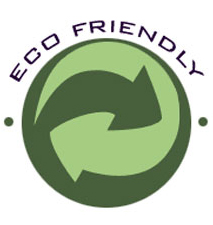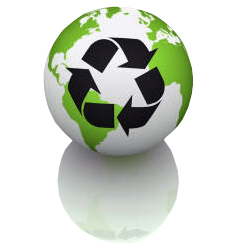 |
 |
CONSUMPTION |
|
| X |
Each year, an estimated 500 billion to 1 trillion plastic bags are consumed worldwide. That comes out to over one million per minute. Billions end up as litter each year. Tied end to end, that’s enough to circle the earth 63 times |
|
| X |
According to the EPA, over 380 billion plastic bags, sacks and wraps are consumed in the U.S. each year. |
| X |
According to The Wall Street Journal, the U.S. goes through 100 billion plastic shopping bags annually. (Estimated cost to retailers is $4 billion) |
| X |
According to the industry publication Modern Plastics, Taiwan consumes 20 billion bags a year—900 per person. |
| X |
According to Australia’s Department of Environment, Australians consume 6.9 billion plastic bags each year—326 per person. An estimated .7% or 49,600,000 end up as litter each year. |
|
 |
|
 |
ENVIRONMENTAL IMPACT |
|
 |
| X |
Hundreds of thousands of sea turtles, whales and other marine mammals die every year from eating discarded plastic bags mistaken for food. |
| X |
Plastic bags don’t biodegrade, they photodegrade—breaking down into smaller and smaller toxic bits contaminating soil and waterways and entering the food web when animals accidentally ingest. |
| X |
As part of Clean up Australia Day, in one day nearly 500,000 plastic bags were collected. |
| X |
Windblown plastic bags are so prevalent in Africa that a cottage industry has sprung up harvesting bags and using them to weave hats, and even bags. According to the BBC, one group harvests 30,000 per month. |
| X |
Plastic bags are among the 12 items of debris most often found in coastal cleanups, according to the nonprofit Center for Marine Conservation. |
|
|
|
 |
SOLUTIONS |
|
| |
Each high quality reusable shopping bag you use has the potential to eliminate hundreds, if not thousands, of plastic bags over its lifetime.
Starting with the simple step of bringing your own reusable cloth bag to shop may seem trivial, but it creates a "mindset." Like anything, the more people who take this simple step, the more it becomes the natural and right thing to do.
A worldwide trend has started. Companies around the world, from Hong Kong to London, are abandoning plastic and expensive paper bags in order to promote green living.
- Conserves the Goodness of Nature
- Creates a Green Globe
- Protects the Planet Earth
- Regulates your Environment
|
|
 |
NEWS |
|
| |
China's State Council said the ban will start June 1. Firms that continue to sell, make and distribute bags thicker than 0.025 mm thick will be given fines and authorities may seize goods and profits, the State Council said.
"Our country consumes huge amounts of plastic bags every year. While providing convenience to consumers, they have also caused serious pollution, and waste of energy and resources, because of excessive use and inadequate recycling," the government said in a statement, according to Reuters.
"We should encourage people to return to carrying cloth bags, using baskets for their vegetables."
In March 2007, San Francisco became the first North American city to ban non-recyclable plastic bags made from petroleum products.
Later in April, the Manitoba town of Leaf Rapids became the first Canadian municipality to prohibit plastic sacks.
Other regions in South Africa, Ireland and Taiwan have placed additional fees and taxes on the bags to discourage use. |
| |
CBC News Tuesday, January 8, 2008 |
|
|
 |